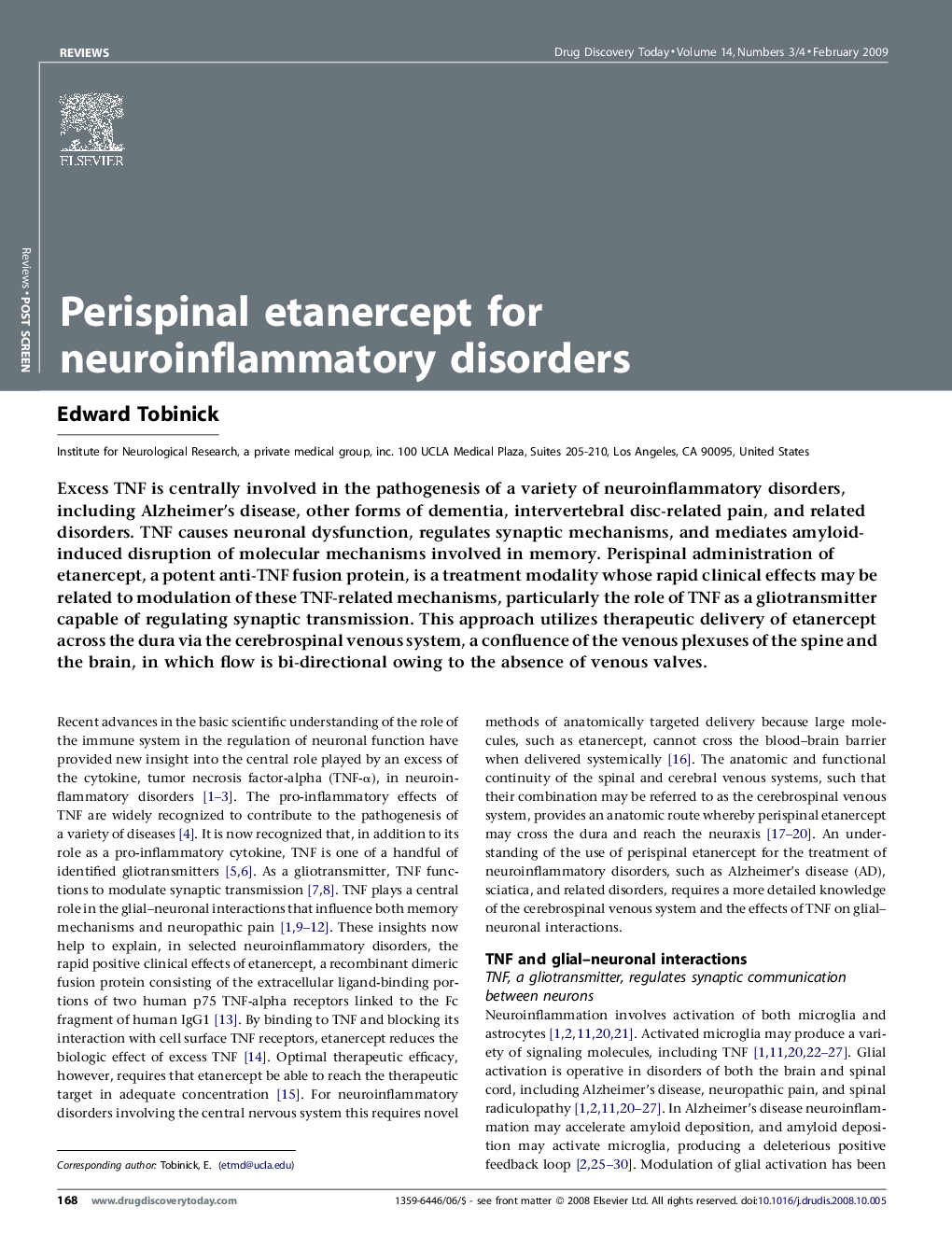| Article ID | Journal | Published Year | Pages | File Type |
|---|---|---|---|---|
| 2080457 | Drug Discovery Today | 2009 | 10 Pages |
Excess TNF is centrally involved in the pathogenesis of a variety of neuroinflammatory disorders, including Alzheimer's disease, other forms of dementia, intervertebral disc-related pain, and related disorders. TNF causes neuronal dysfunction, regulates synaptic mechanisms, and mediates amyloid-induced disruption of molecular mechanisms involved in memory. Perispinal administration of etanercept, a potent anti-TNF fusion protein, is a treatment modality whose rapid clinical effects may be related to modulation of these TNF-related mechanisms, particularly the role of TNF as a gliotransmitter capable of regulating synaptic transmission. This approach utilizes therapeutic delivery of etanercept across the dura via the cerebrospinal venous system, a confluence of the venous plexuses of the spine and the brain, in which flow is bi-directional owing to the absence of venous valves.
